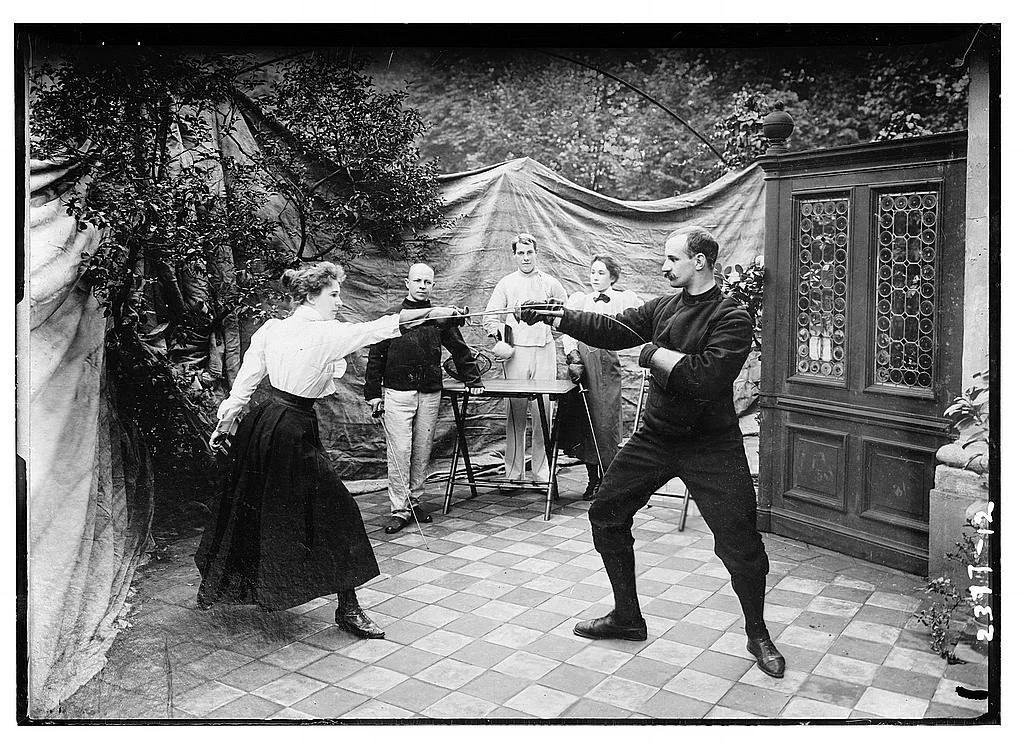The way you talk to yourself
Friend or foe? We can all be either. (Library of Congress photo)
My husband, unlike me, is a lifelong athlete whose muscles have developed with the aid of testosterone.
In the moment, however, when he’s on the other side of the net, I have a hard time remembering that. The ball comes at me too fast on the eighth shot of the rally, and I whack it into the net or over to the adjacent tennis court with an involuntary cry of frustration.
What happens next is critical. It makes all the difference as to whether we have fun playing tennis together…or ride home in silence wishing we had skipped it.
I have to carefully consider what I will say to myself.
After a couple of decades of teaching and coaching other people and witnessing their self-talk, I’ve got some perspective on what will be helpful versus harmful. Lots of us berate ourselves, believing that we will work harder if we do. But even if it works in the short-term, I’ve never seen it lead to happiness. Gentle, supportive phrases not only make us feel better, they give us the will and the desire to keep going. The way you talk to yourself matters.
We don’t always have control over our thoughts, but we do have control over what we say. We can say, out loud or in our heads, the thing that a generous coach would say. Even if we aren’t sure how to move forward, there is some advice that will always be valid: Stay with it. Take your time. Easy does it. Breathe. These encouraging words allow us to manage our emotions and stay present, which will help us perform at our peak ability.
If you have a habit of shouting less gentle and supportive things at yourself (“Stupid! What’s wrong with you? It was right in front of you! You should have gotten that! You are never gonna come back from this”), try not to beat yourself up for that. I recommend apologizing lightly to yourself (really) and following up with something more constructive.
It may help to imagine your words in someone else’s voice — or imagine yourself saying those words to someone else. You’ll see right away which self-talk is so horribly mean that you’d never talk to someone else that way, and you’d fire any teacher or coach who dared to say those things to you. Just because we get used to abusive language doesn’t mean it’s okay — even if we’re the ones abusing ourselves.
As you improve at a skill, your self-talk can get more specific and you can offer yourself direct feedback on what you just did or little reminders about what is coming. No matter what, though, keep your inner voice as warm and patient as you possibly can.
I’ve spent a lot of time talking myself through musical performances and exhausting computer tasks. I’m less experienced at coaching myself in a competitive sport. But I have been pleased to find that applying the same principles that I’ve learned as a teacher has helped me to play better and to handle losing gracefully. Surprisingly, these skills have also helped me to win. The voice doesn’t say, “That’s okay, better luck next time,” in the middle of a losing set. It says, “YOU CAN DO THIS.” Every time I listen, it becomes more true.
Whatever you’re attempting to do, there will be ups and downs, successes and failures. You know this — you carry this wisdom with you. The more you calibrate your self-coaching to this wisdom, the more you will find success, even if that means celebrating the little wins along the way. Seeing things through the lens of positive self-talk, you’ll be motivated to stay in the game, stick with it, and prevail. You got this.






